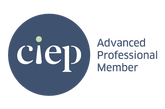Editing into plain EnglishWhat is plain English?‘Plain English’ means using the English language in a straightforward way, to make your writing accessible to a wide audience. It means cutting out verbosity, complex sentences, abstract wording, corporate-speak, legalese, jargon and overly technical language.
|
Plain English uses the vocabulary and structures that most English speakers are used to. As Sir Ernest Gowers, a senior civil servant who campaigned for simplicity in the use of English, put it in The Complete Plain Words: ‘Be short, be simple, be human’.
It isn’t all about the wording, though. Written material can also be made ‘plainer’ by ensuring that its layout, formatting and organisation help to make it easy to digest.
It isn’t all about the wording, though. Written material can also be made ‘plainer’ by ensuring that its layout, formatting and organisation help to make it easy to digest.
Why use plain English?
Plain English can be valuable in many types of written material, such as:
The people who will read your writing may well be busy, perhaps stressed. Will they be prepared to spend much time making sense of complex sentences with difficult wording? If you want them to respond positively, it’s worth going the extra mile to make the reading process quick and easy for them.
This will be good for customer relations and your organisation’s reputation. You’ll be keeping the readers on your side, and showing that you care about them.
It may well save time and money for you. With less risk of confusion and ambiguity, there’ll be less need to clarify things to your customers, your staff and other readers, or to deal with mistakes caused by misunderstandings.
Accessibility is often an important factor. You may need to allow for readers with different educational and linguistic backgrounds, and different levels of literacy. If your text is going to be translated into other languages, a plain writing style will help with that process.
This isn’t about ‘dumbing down’, as is sometimes suggested. Even highly intelligent, well-educated people with a strong command of English may struggle to grasp what something means if it isn’t presented simply, concisely and logically. Have you ever heard anyone complain that something was too easy to read?
Here are some more thoughts on the benefits of plain English:
- public information
- customer information
- product and service descriptions
- fact sheets
- research results
- emails and letters
- forms
- customer charters
- policies
- agreements and contracts.
The people who will read your writing may well be busy, perhaps stressed. Will they be prepared to spend much time making sense of complex sentences with difficult wording? If you want them to respond positively, it’s worth going the extra mile to make the reading process quick and easy for them.
This will be good for customer relations and your organisation’s reputation. You’ll be keeping the readers on your side, and showing that you care about them.
It may well save time and money for you. With less risk of confusion and ambiguity, there’ll be less need to clarify things to your customers, your staff and other readers, or to deal with mistakes caused by misunderstandings.
Accessibility is often an important factor. You may need to allow for readers with different educational and linguistic backgrounds, and different levels of literacy. If your text is going to be translated into other languages, a plain writing style will help with that process.
This isn’t about ‘dumbing down’, as is sometimes suggested. Even highly intelligent, well-educated people with a strong command of English may struggle to grasp what something means if it isn’t presented simply, concisely and logically. Have you ever heard anyone complain that something was too easy to read?
Here are some more thoughts on the benefits of plain English:
- Fellow editor Karin Cather – ‘Plain language is not for dummies’
- The US government’s Plain Language Action and Information Network – ‘Arguments in favor of plain language’
An example
The paragraph below is based on one from a leaflet published by a medical practice in the UK.
Patients between the ages of 16-74 who have not been seen at the surgery for a period of 3 years, may request a consultation with a GP, at which any appropriate inquiries and investigations will be made. Consultations can also be requested by patients over the age of 75, who have not been seen at the surgery for 12 months or more.
And here’s how I might simplify it into something more straightforward and patient-friendly:
If you’re over 16 and haven’t visited the surgery for at least 3 years, or are over 75 and haven’t visited for at least a year, you may ask for a consultation with a GP.
What I’ll do for you
All of my editing work involves improving clarity and readability in some way. If I do a plain English edit for you, it will include everything I normally do when editing that type of material (the Business editing page will give you some idea of what this may mean).
But I’ll also dive deeper into the vocabulary, and into the structures of sentences, paragraphs, sections and the overall document, aiming to make the reading process as easy as possible for a wide audience.
After my main edit, there may well be some queries for you to answer. It will often be useful if I do at least one more edit, so I can take your answers into account and improve the text further. We can discuss this before agreeing on the scope of work, the timeframe and the fee.
I’m experienced in ‘translating’ highly technical writing for non-technical readers, and I’ve worked with a specific plain English remit on several guides to doing business in various countries. I’ve also completed the Plain English for Editors course provided by the Chartered Institute of Editing and Proofreading (CIEP).
But I’ll also dive deeper into the vocabulary, and into the structures of sentences, paragraphs, sections and the overall document, aiming to make the reading process as easy as possible for a wide audience.
After my main edit, there may well be some queries for you to answer. It will often be useful if I do at least one more edit, so I can take your answers into account and improve the text further. We can discuss this before agreeing on the scope of work, the timeframe and the fee.
I’m experienced in ‘translating’ highly technical writing for non-technical readers, and I’ve worked with a specific plain English remit on several guides to doing business in various countries. I’ve also completed the Plain English for Editors course provided by the Chartered Institute of Editing and Proofreading (CIEP).
▶️ Do you have something that could benefit from a plain English overhaul? Let me know what it is and who’s going to read it (please see the Get a quote page), and I’ll take a look and respond with a proposal.



